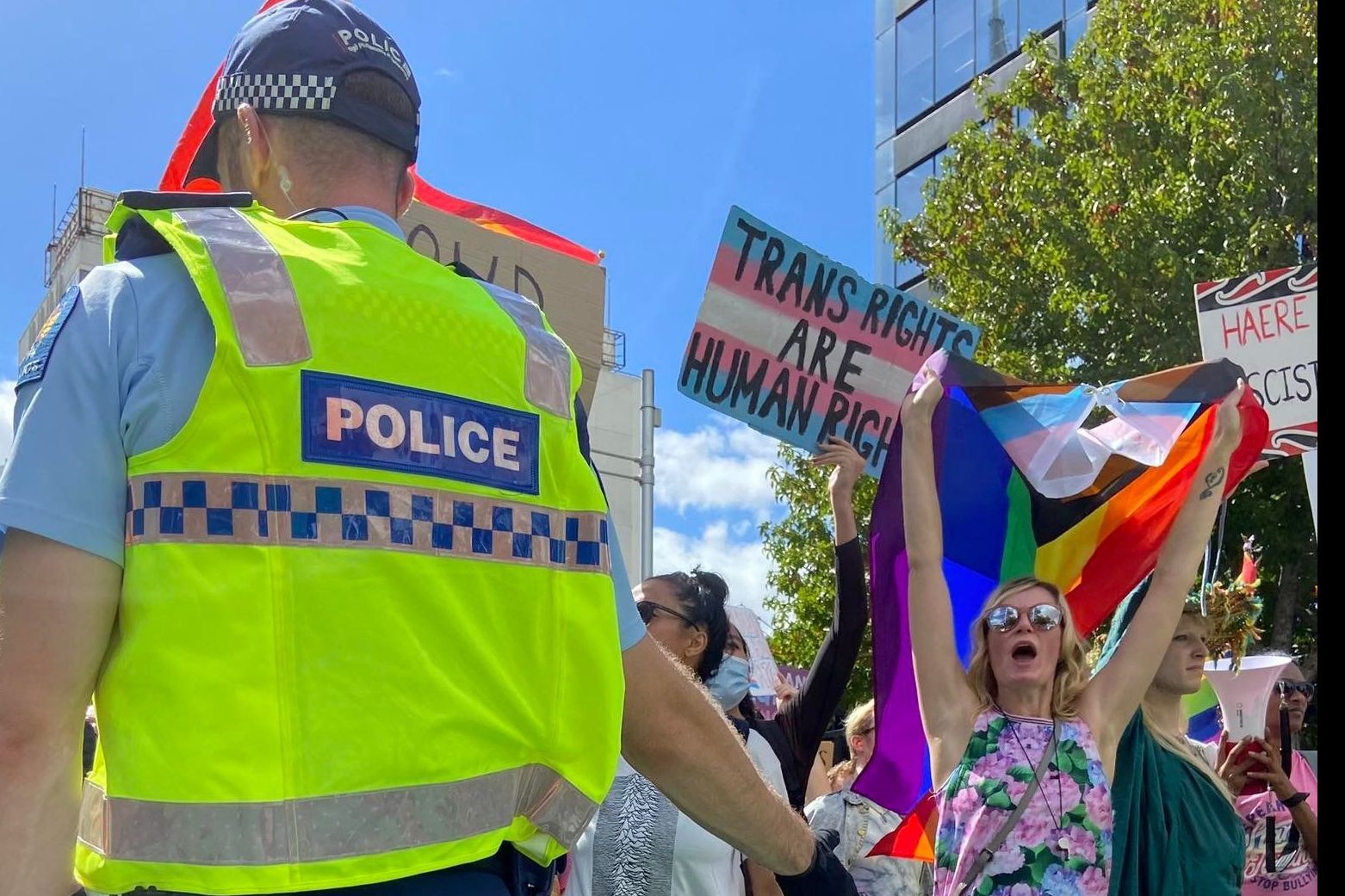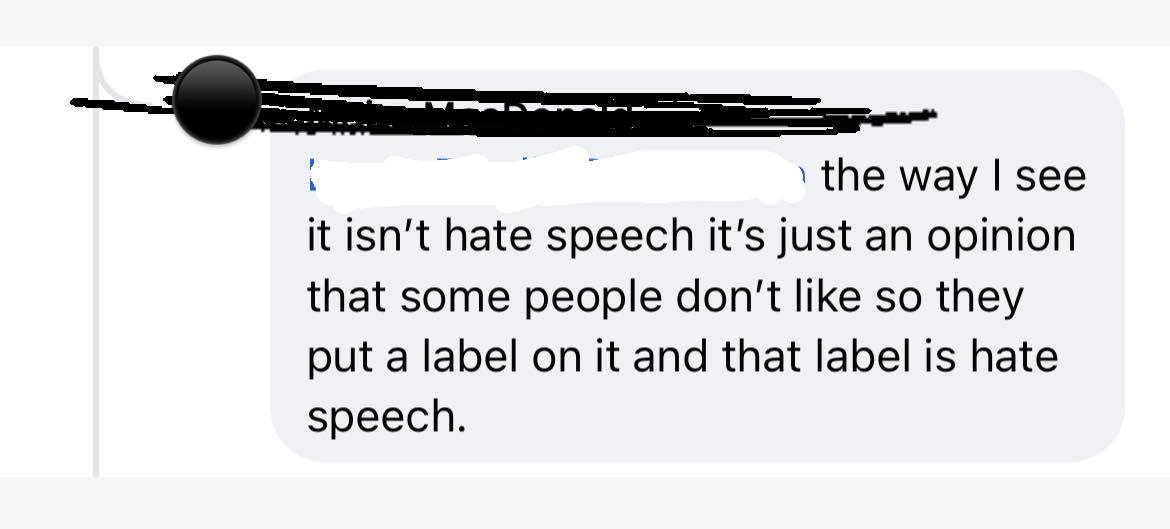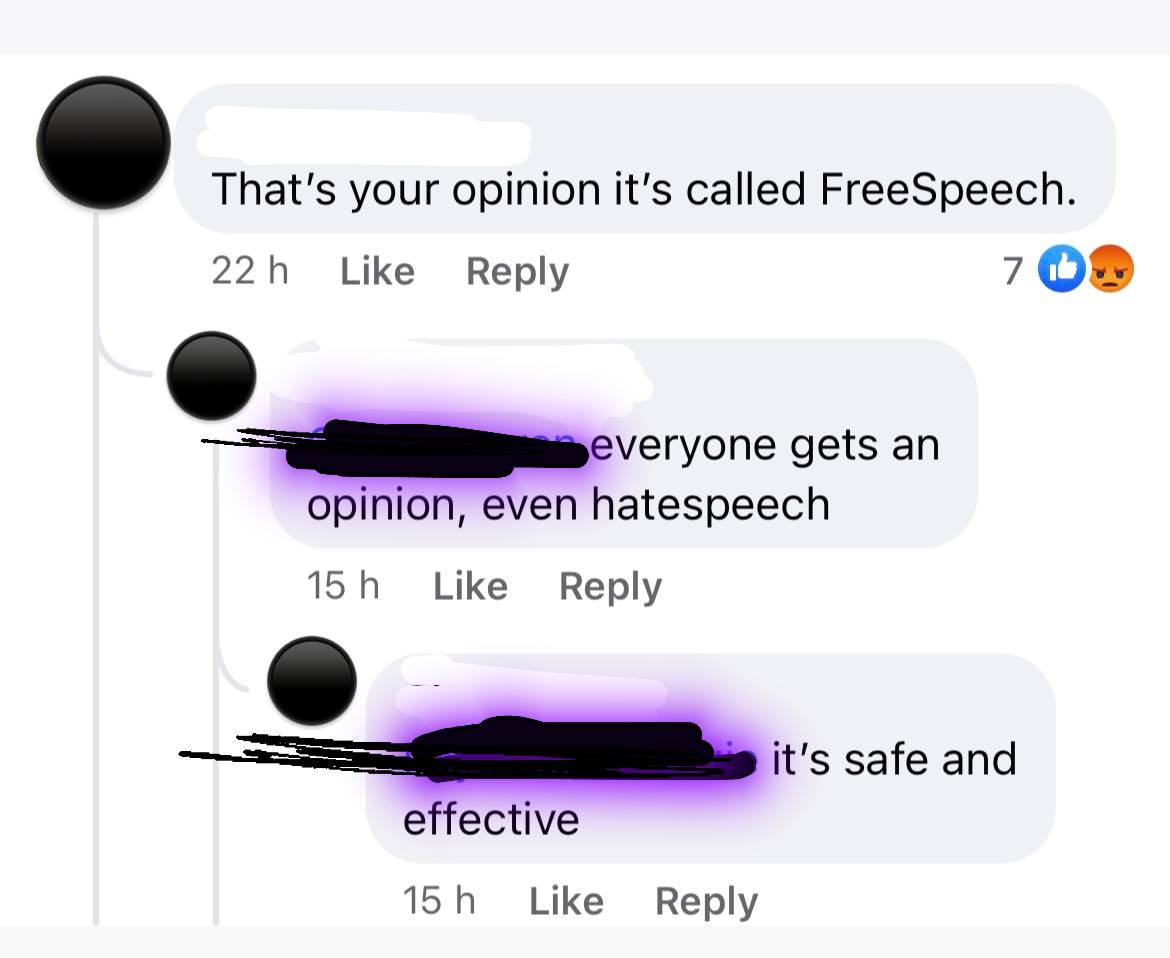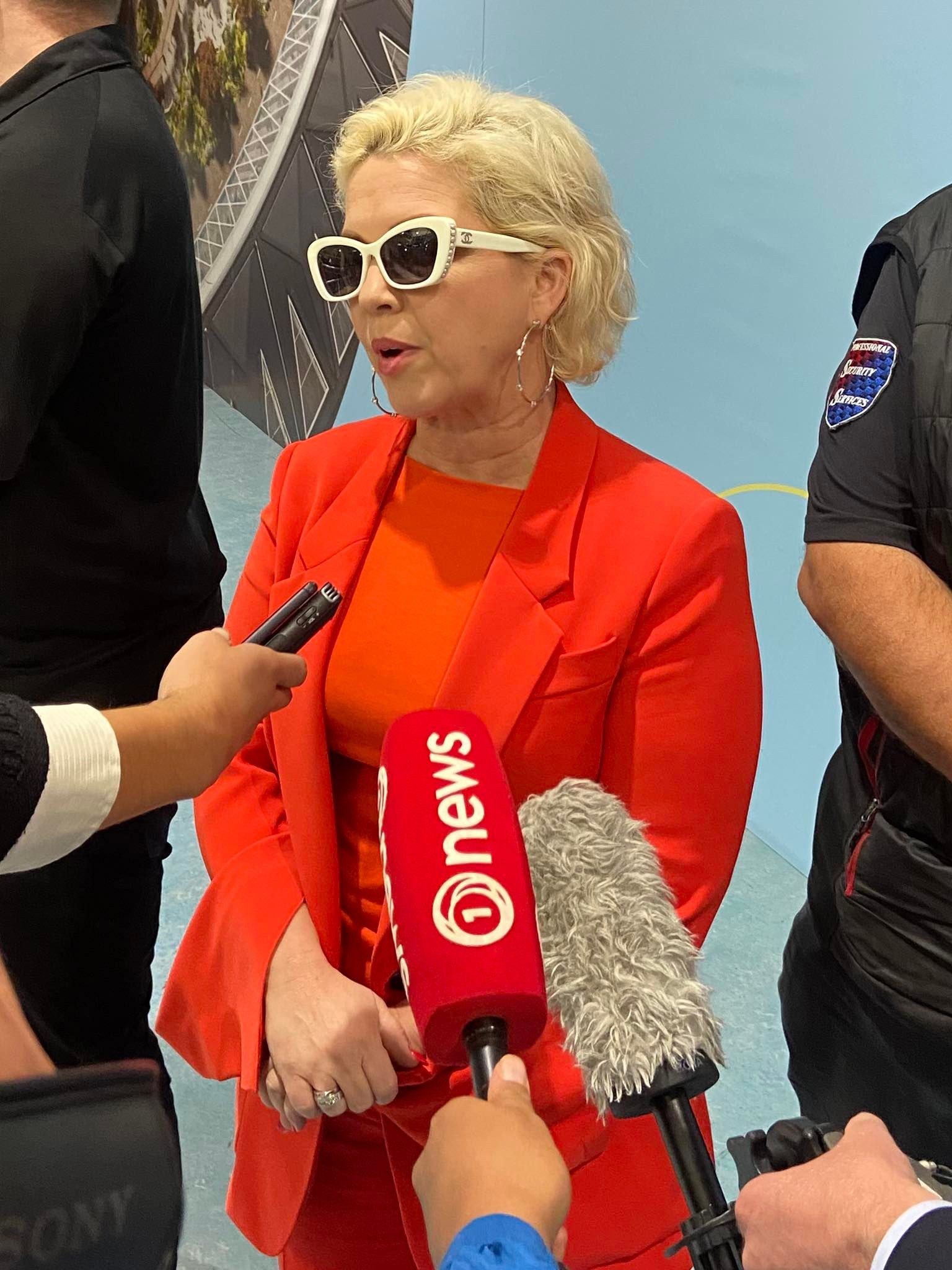Freedom Of Speech vs Hate Speech: How To Navigate As A Creative
Aotearoa is again being divided by a debate that rears its head in the most volatile circumstances. So how can artists avoid having their views and their mahi dragged into the toxic mire?

To immerse yourself in creativity usually has a common theme of ‘agency’ - as in you have the influence and opportunity to engage in what you are passionate about, to unapologetically challenge the status quo, to raise awareness of an issue close to you.
It's also about having the agency to censor or not censor your creativity and authenticity.
However, when you think about current events dominating the social media and talkback landscape right now with Posie Parker - the anti-Trans activist who stoically and vocally believes that Trans peoples, particularly Trans women are infringing the rights of cisgender women - it naturally can make those creatives who are part of the Rainbow community feel like their livelihood is being expeditiously tarnished.
As artists, how do you respond to someone like this?
Do you respond to people like Parker by writing a show in response to that hate? Will other anti-Trans people deem it hypocritical and argue that the show is a form of hate speech, just as some will argue that it is a reversal of hate speech?.
It is every creative artist's fear of being cancelled, to be accused of leaning towards hate speech rather than freedom of speech.
To give context, I garnered responses online from people stating below:


Understanding these real comments from people thinking Parker should be allowed to come to Aotearoa and to use her freedom of speech to express her anti-trans views can be ultimately problematic, as the above views can be seen as the rationalising of hatred being spewed on underserved communities.
What's the difference?
Freedom of speech, according to Amnesty International UK, is essentially the right to seek, receive, and impart information and ideas of any kind.
However, the key point to take away is that even with freedom of speech, it can be restricted from a governmental standpoint (depending on countries), because it's not great when you incite epistemic violence as a result of your willingness to express your unfiltered thoughts.
Essentially, you can't just have the freedom to say whatever you want about whatever you want, whenever you want.
To exercise your right of freedom of speech, you have to be cognisant of its impacts on a community - words hold massive power and influence.
Hate speech doesn't mean prohibiting the expression of free speech. According to the United Nations, it means the escalation of dangerous rhetoric that incite discrimination, violence and as a result, hostility.

By that definition, derogatory language fits the bill as a fast-spreading form of discrimination. That's where Parker (above) sits - clearly overstepping the boundaries of freedom of speech - as the rhetoric and further ramifications will severely affect the mental health of our Trans community and our Rainbow community as a whole.
Hate speech from my view - as an aspiring academic and artist, graduate teacher and writer - needs to be banned, as it attacks the fundamental democracy of equality in this country.
Find your own balance
Creatives have the agency to be raw in their art - that’s the beauty of creativity.
Sometimes in the world, using your voice as a form of activism can be exhausting and detrimental. So using our creative arts mediums of dance, theatre, music, writing and the likes allows that cathartic experience of using our voices for activism but also finding joy through the crux of that creativity - ultimately being inspired rather than distraught.
As a creative artist, I want to express my views and exercise my freedom of speech as a Queer, Christian and Samoan male. The conflicting and intersectional layers to my identity can make it nuanced and complex.
I used to find it hard, not wanting to offend any community. However the difference between me advocating for what I believe in - particularly in this write up around freedom of speech vs hate speech - is that I choose my words wisely and with consideration to others.
From a creative standpoint, we should create work to express how we feel in a way where open conversations become integral. Life is not black or white - there’s grey in between. There’s a multitude of shades and nuance which makes even the simple aspects of things complex.
Thus, coming from a place of honesty and understanding creatively allows your freedom of speech to be amplified. Once you come from a place of non-openness and hate disguised as ‘creativity’ or ‘freedom of speech’ then it becomes dangerous.
There are people like Donald Trump that are clear examples of using ‘freedom of speech’ loosely to disguise his animosity and hate for communities different from him. However, because he explicitly has stated xenophobic, homophobic, racist and misogynistic words, the Former President has damaged many underserved communities or minorities in America. That surely is the definition of exceeding freedom of speech and waltzing straight into perpetuating hate speech.
A show also finding its way into the headlines recently has ben Tusiata Avia's The Savage Coloniser, with references to colonisation, slavery, genocide, sexual abuse and racism. This raunchy but truth telling show caught criticism from the Act Party as being racist, implying notions of hate speech.
However, this brings up a prior point about the tough navigation of using your creativity to express truth, as truth comes in many multi-faceted ways.
As a New Zealand born Samoan, I understand some of the notions contained in this show, as it talks about truth in an authentic way. There are people who want to chuck implications and blanket statements to disguise what they are feeling.
So how creatives can use their voices to express their freedom of speech and expression - but not perpetuate hate speech - is by understanding the definitions of the two. It also takes shifting from a standpoint of necessary rage to one of hope and relentless compassion - so then when we create art, it is about creativity and truth, not hate speech and resentment.